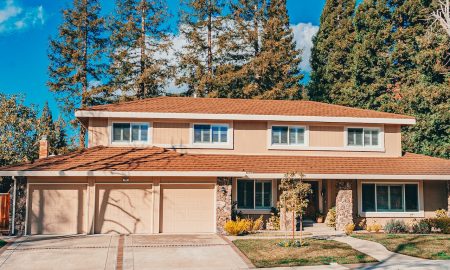
Looking to Increase Your Retirement Income Exponentially? Here Are Feasible Ways to Do So!

Running dry on cash during your retirement years can be the worst thing that can happen to you!
Indeed, it has become such a major concern for the working and elderly, so much so that over 60% of Americans are more worried about not having money during their retirement years than actually dying!
Yikes!
That being said, if you are one of the few worried about not having any cash flow during your retirement years, here’s what you can do to increase your income prior to your retirement.
Take Advantage of Your 401(K) or IRA
One of the biggest benefits of being above the age of 50 years is that the IRS gives you’re a greater leeway to fund your retirement plan. Indeed, any worker over 50 years is permitted a $6000 401(k) catch-up as well as a $1000 IRA catch-up.
Either of which will translate to a massive increase in your total savings. Moreover, these catch-ups come added to the standard savings for the aforementioned accounts.
Which means $18,500 for the former and $5500 for the latter. So, say you are currently 52 years of age and would like to retire at the age of 67.
Indeed, if you were to add your IRA contributions by $1000 every year for the next 15 years, which would translate to adding $25,000 to your savings, which would then generate about 7% return during that time frame.
Additionally, if you were also adding $6000 to your 401(k) as contributions over the same 15 years, that would translate to $151,000 on a similar 7% return.

Retiring with a steady income is every person’s dream!
File for Social Security as Late as You Can
Despite the fact that your Social Security is calculated based on the most lucrative 35 years of your earnings, the age at which you decide to file for these benefits can greatly affect whether benefits increase, reduce, or stay constant.
For instance, if you file for Social Security during the age at which you retire, you will receive the same monthly benefits in terms of earnings that the record pits you to get.
Nevertheless, if you delay getting these benefits past your retirement age, you automatically get an 8% increase on them until you reach 70 years.
Conclusively, you will also be entitled to a $1600 a month benefit until you reach the age of 67.
That being said, if you wait until 70 to file, your monthly benefit will hit $1984.
Purchase Stocks That Pay Dividends
One thing you should understand is that not all stocks provide the benefit of dividends. Moreover, those that don’t will not give pay you any money while they are still in your possession.
However, when you opt to stack your portfolio with dividend stocks, you will be awarded quarterly payments that can add a tremendous amount of income to your retirement benefits income.
Indeed, another benefit of dividend stocks is that even as the stock market underperforms, you will occasionally receive your dividend income to your account.
This will give you some financial reprieve generally at a time where most people would consider selling their stocks.

Investing in dividend stocks and bonds can give you the comfortable retirement you desire
Purchasing Bonds
Similar to the dividend received from stocks, bonds provide the owners with continuous payments (although on a semi-annual basis) which can be critical income during those retirement years.
Additionally, because bonds are less risky as compared to stocks, they are considered the most ideal investment for most seniors.
Most seniors are encouraged to focus on purchasing municipal bonds.
That’s because, with these bonds, you are devoid of paying any federal taxes on interest payments made to you.
As a matter of fact, you will also be exempted from local and state taxes if your purchase municipal bonds from your Home State.

There’s nothing sweeter than retiring when you’ve already cleared your mortgage!
Transform Your Housing Position
Similar to how housing can prove to be the biggest monthly expense prior to retirement, you might find yourself battling with it into retirement!
Indeed, lowering that expense early on can be crucial to ensuring that you minimize this expense when you are older. There are a couple of options that one could look at.
For starters, you might opt to downsize the current home that you are living in, which would potentially cost less and would be easier to maintain.
Alternatively, you could move to a less expensive part of the country; essentially somewhere where the property taxes are relatively low.
More in Pocket Change
-
`
Why You Need to Think Twice Before Buying a House
So, you have been scrolling through real estate listings, envisioning your dream kitchen, and even bookmarking paint colors for the nursery....
November 26, 2023 -
`
Santo Spirits: Sammy Hagar and Guy Fieri’s Joint Venture
In the world of business partnerships, some combinations might seem unconventional at first glance. But when you delve deeper into the...
November 16, 2023 -
`
Everything You Need to Know About Mortgage Rate Lock
You have probably embarked on the exciting yet nerve-wracking voyage of purchasing a home. Amidst the sea of paperwork, open houses,...
November 9, 2023 -
`
7 Effective Ways to Make Your Business More Sustainable
In an age of rising environmental consciousness, making your business more sustainable isn’t just a trend; it’s a necessity. Sustainable practices...
November 3, 2023 -
`
Housing Market Going Up? Then Why Not Rent?
“Buy a house! It is the best investment!” How many times have you heard that? Probably enough to make a drinking...
October 29, 2023 -
`
Surprising! Celebs Who You Didn’t Know Had a Master’s Degree
When it comes to celebrities, we often associate them with glitz, glamour, and blockbuster movies. But did you know that some...
October 17, 2023 -
`
Navigating the Housing Maze: The 7% Mortgage Rate Quandary
If there is one thing that this year has thrown our way (apart from those fascinating tech gadgets we did not know...
October 12, 2023 -
`
Where to Buy a House in the U.S With a $100K Salary
Got a cool $100,000 annual paycheck in your pocket? Cheers to that accomplishment! With such a financial cushion, dreams of homeownership...
October 6, 2023 -
`
The “Grave” Housing Crisis Forcing U.S. Homeowners to Sell Their Houses
Every culture has its dreams and aspirations. For those living in the United States, it has traditionally been an idyllic house, spacious and...
October 1, 2023















You must be logged in to post a comment Login